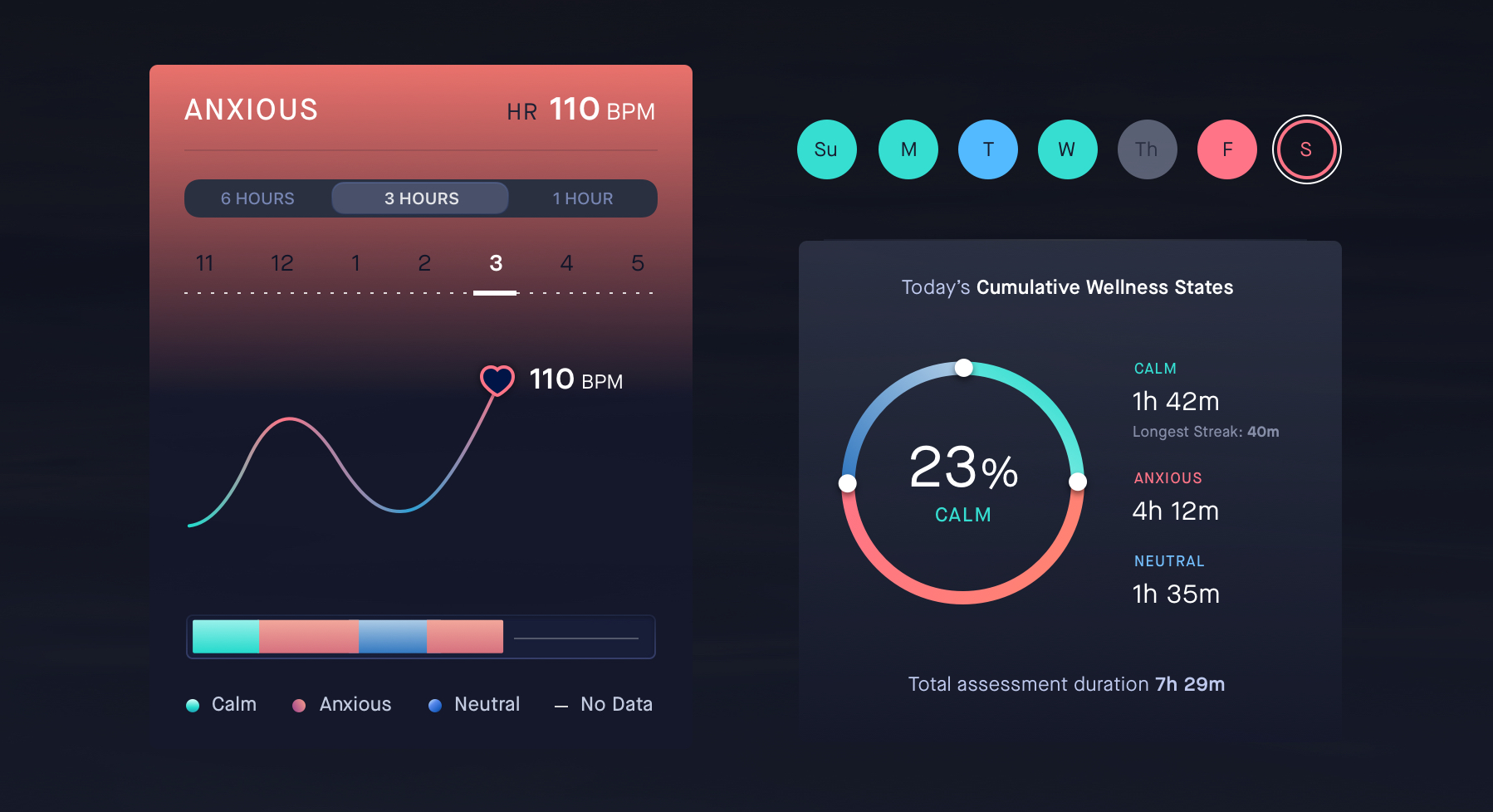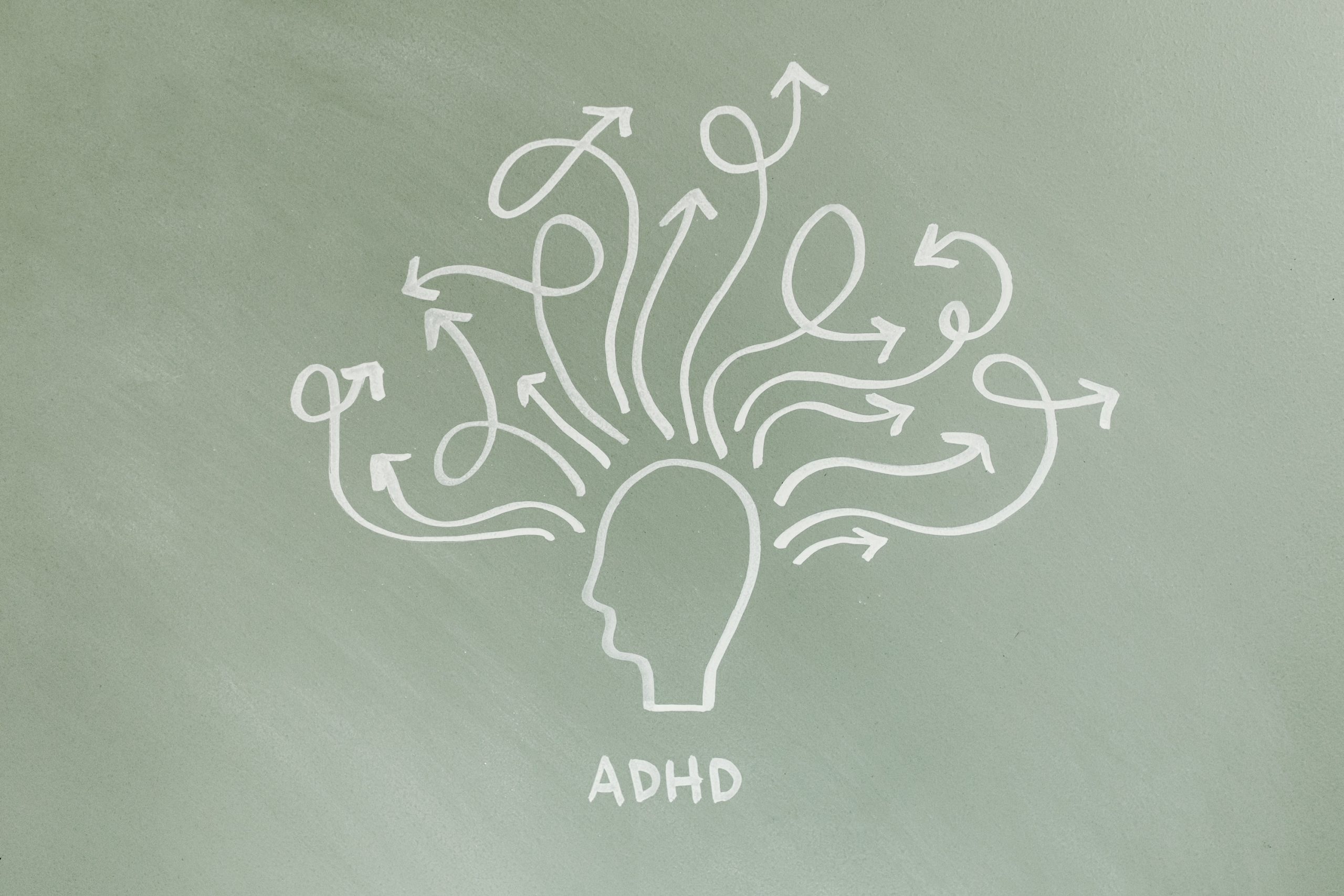Paying attention can be a huge challenge for everyone, but especially with our friends with attention deficit hyperactivity disorder (ADHD). And although therapy and medication can help manage symptoms, many children and adults with ADHD still struggle with inattention on a daily basis. However, those aren’t the only treatment options available. In fact, they may not even be the best choices available. Numerous studies have found that meditation for ADHD can help train the brain to improve concentration and attention.
It’s estimated that nearly 5% of adults and 10% of children in the United States have ADHD. That’s a significant number of people. NIH considers ADHD to be at the level of an epidemic. But despite its relatively high prevalence, managing symptoms and finding an effective treatment regimen can prove to be challenging. Most often, people with ADHD struggle with:
- Inattention – Difficulty staying focused
- Hyperactivity – Engagement in compulsive excess movement
- Impulsiveness – Sudden or spontaneous decision-making
Many people with ADHD also find it challenging to maintain a consistent sleep schedule, regulate their emotions, and keep track of time. Experiencing these symptoms can significantly impact your quality of life.
Mindfulness and meditation have the potential to treat the problem at the source by retraining your brain to function more optimally, with zero side effects.
What is meditation?
Meditation has become en vogue – everyone from neuroscientists and primary care physicians to celebrities and CEOs is advocating for more meditation. A simple Google search will reveal thousands of studies that demonstrate the efficacy of meditation in solving some of the most pressing problems we face: improving sleep, reducing pain, managing mental health, increasing productivity, and focusing attention.
But what exactly is meditation? If you’re unfamiliar with the practice, you might picture sitting cross-legged, with your eyes closed, and trying to clear your mind. While meditating can certainly look like that for some people, it’s much more than that.
Meditation is a technique for resting the mind and achieving a state of relaxed yet clear consciousness. It is different from our normal waking state. It’s about training your brain to be more aware and accepting of our thoughts and feelings, and to observe them without judgment. While it may seem to an outside observer that meditation is akin to doing nothing, the meditator is actually improving the inhibitory networks in the brain. By learning to pause at that right moment, we are opening the door to then making a plan, visualizing an action, and improving an outcome. In many professional fields these days, a single error can be more costly than a year’s salary.
Why meditation is beneficial for those with ADHD
The meditation craze that has taken storm over the last several decades resonates for many people, but especially so for people with ADHD and other focus-related disorders. Because meditation helps develop inner skills and strengthens your ability to self-observe, studies show it can help improve:
- Attention
- Decision-making
- Impulsivity
- Restlessness
- Memory
- Ability to switch between tasks
- Problem-solving
- Complex thought process
- Mood management
- Awareness of emotional state
- Confidence
How exactly does the simple practice of meditating lead to all these changes? Think of it this way: when a specific muscle in your body is untrained, you can do exercises to gain better control of it. The same can be applied to your brain.
If you struggle to pay attention, you can retrain your brain to improve your ability to focus. The practice of meditation has been shown to strengthen your prefrontal cortex, which is the part of your brain that is responsible for focusing, planning, and decision-making. Richard Davidson’s study of monks demonstrated an anatomical difference in the grey matter of the cortex for long-time meditators. Meditation actually changes the structure of the brain.
Another study also found that meditation boosts the brain’s level of dopamine by 64%, a neurotransmitter that is often in short supply for all of us. Dopamine is an important neurochemical that boosts motivation, mood, and attention.
Other benefits of meditation
Meditation isn’t only helpful in managing ADHD-associated symptoms. It can also help:
- Reduce stress and anxiety
- Improve sleep
- Boost productivity
- Increase overall quality of life
- Lower blood pressure
- Aid in proper digestion
- Relieve chronic pain
- Aid in weight loss
Tips for meditating with ADHD
People with ADHD might find it more challenging to meditate than the average individual. The good news is, meditation does not take a one-size-fits-all approach. If you try one technique and it doesn’t work, move on and try another. Practicing mindfulness is all about finding something that works well for you. Here are some tips regarding meditation for AD/HD.
Start small
Just like any other type of training, you may need to start small. Most likely, you won’t be able to successfully sit through a 30-minute meditation right from the start. Instead, set aside a few minutes a few times a week to meditate and gradually increase your frequency and overall length.
Try guided visualization meditation
Hyperactivity is a huge part of AD/HD, making it difficult to “clear the mind” or even sit still sometimes. If this is something you struggle with, try a guided visualization meditation instead.
Guided meditations can help direct your thoughts and tap into your imagination. Rather than clearing your mind of all thoughts, you’re being guided through a journey inside your head that could be highly engaging and fun!
Use an app
Meditating can be overwhelming at first. Where do you start? How do you track your progress? How can you make it a consistent practice in your everyday life? The answer is: with an app!
AQ™ is a mental fitness app that measures your attention, gives you a score, and helps you improve that score over time with personalized mindfulness exercises. With trainings developed by world-renowned neuropsychologists and teachers, AQ™ can help create lasting emotional, mental, and physical changes that improve attention and focus for people with AD/HD.
Remember that it’s okay if your mind wanders
By nature, our minds are often distracted. Meditation isn’t necessarily about staying with the breath – it’s about returning to it. It’s okay if your mind wanders. But the practice of returning to the task at hand over and over again is what enhances your ability to focus. Neuroscientist Santiago Ramón y Cajal called this wandering of the mind a “speculative cavort”, and credited many of his insights to this relaxed state of non-focus. The paradox of creative achievement is that you can enjoy and gain insight from the wandering of your mind.
Learn more about meditation for ADHD
If you or someone you know is struggling to manage AD/HD-associated symptoms, we encourage you to learn more about meditation for ADHD.
Here at Mindwell Labs, we offer personalized mindfulness training based on your unique biomarkers to help improve your attention, alleviate stress, and better manage focus-related disorders.
Download our app, AQ™, today to get started with meditation for ADHD.
For general questions, please reach out to hello@theaqapp.com.





